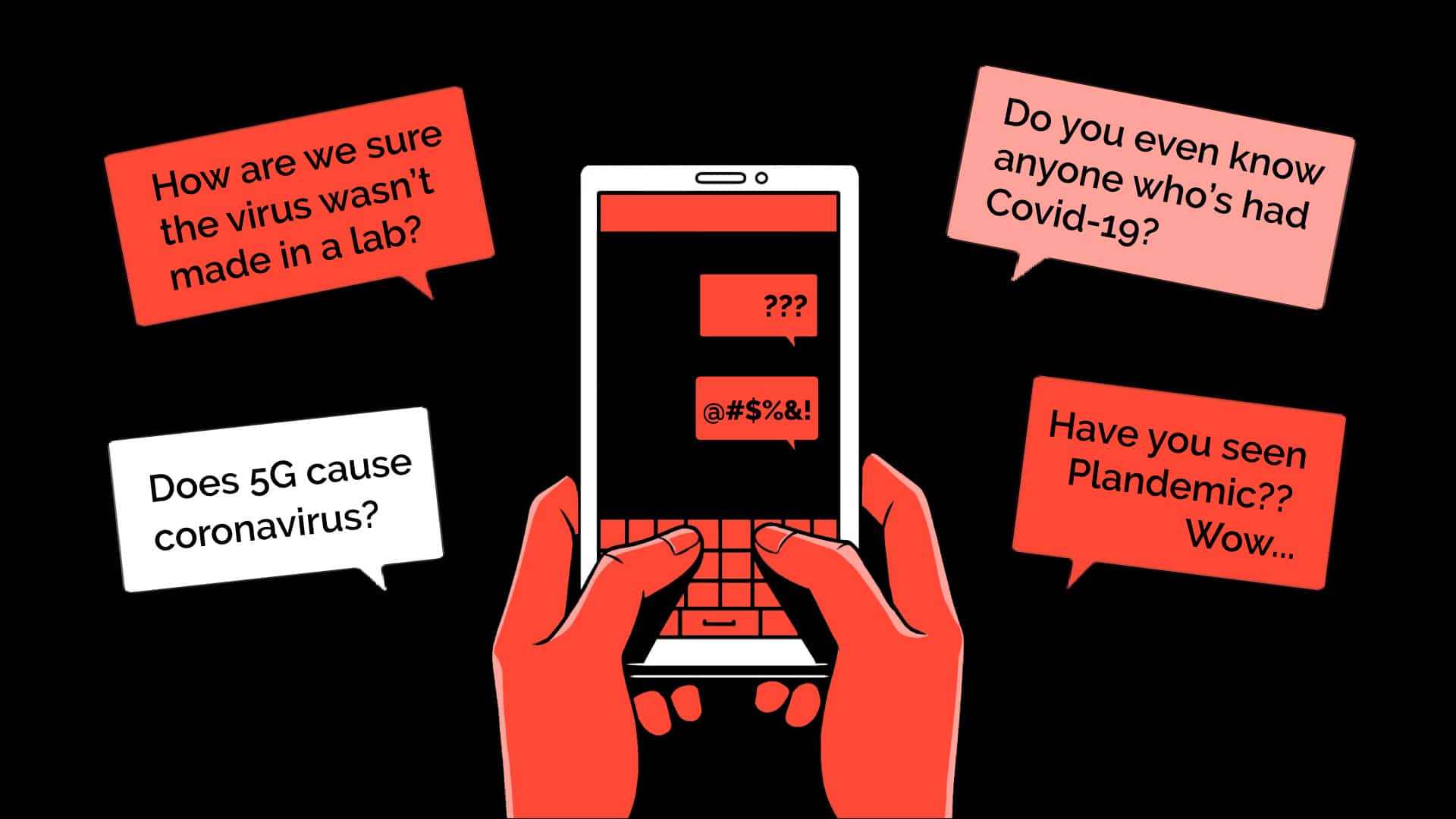Opinion: Medical School Taught Me How to Talk to Conspiracy Theorists

A few weeks ago, I took an uncomfortable trip down the rabbit hole of Covid-19 conspiracy theory videos. As a newly minted M.D. who will soon be taking care of patients at a safety-net hospital on the frontlines of an ongoing pandemic, I was especially pained by what I saw. There was the infamous “Plandemic” video, which asserts that a cabal of elite individuals and organizations is using Covid-19 to cement power. There were also false claims that the new coronavirus was created with the backing of Bill Gates, for the purposes of diminishing our freedoms.
Watching the videos pushed me to think about why so many viewers gravitate toward them — and how best to counter their misinformation. On both of those fronts, my experiences working with patients have taught me valuable lessons.
I’ve learned that conspiracy theorists are often neither malevolent nor unintelligent. Rather, many are afraid of their own powerlessness, and these theories offer them a semblance of control. Believing that Covid-19 was perpetuated by organizations with evil intentions allows conspiracy theorists to affix their anxiety onto a big, bad villain, rather than acknowledge our collective powerlessness against the whims of nature. It helps allay existential fears regarding the indifferent, arbitrary universe we live in. I recognize these emotions because I have seen them time and time again in my patients who are hesitant to heed medical advice, either due to misinformation or due to a reluctance to change their habits.
A second allure of conspiracy theories may be that they allow the believer to lay claim to a secret truth that is not limited by one’s level of wealth or education. Previous studies have demonstrated that lower education levels correspond with increased reliance on conspiratorial explanations, with one concluding that “education may undermine the reasoning processes and assumptions that are reflected in conspiracy belief.” The average Covid-19 conspiracy theorist has probably never received the training needed to interpret complex academic papers. I couldn’t send them one of the dozens of research articles I’ve read over the past months and expect them to grasp its nuances. Yet, if I were to challenge them on their beliefs, it wouldn’t be surprising if they accused me of being the one who hadn’t done my due diligence in researching Covid-19. Conspiracy theories abound because they are easy to understand and fit neatly within their own twisted internal logic. The truth is often hopelessly complicated, but the best lies are simple and easy to believe.
Fortunately, physicians have a powerful tool to persuade patients on a wide range of issues, from smoking to vaccines: motivational interviewing, a form of conversation therapy used to assess and guide patients in the process of making positive changes. As a part of motivational interviewing, I ask my patients about their biggest barriers to changing their minds or habits; this way, I know which worries or misinformation to try to address. I never resort to guilt-tripping, fearmongering, or ridicule, because those who feel their beliefs are being threatened become even more entrenched in their views.
At the end of every discussion, I reassess my patients’ willingness to change. Most of my patients aren’t willing to give up their deep-rooted beliefs or habits after a single office visit, so I remain open to an ongoing conversation. Over the course of many visits, my patients get to know me and understand that I want the best for them. By fostering a sense of mutual respect, I can often nudge them toward healthy behaviors, like taking their medications or taking actionable steps to quit smoking.
So, now, when I encounter a Covid-19 conspiracy theorist, I approach the conversation like this: I empathize with them, acknowledging that Covid-19 is horrifying and that we all want our loved ones to be safe. I tell them that I don’t trust the conclusions of some of the conspiracy videos on the internet, and I offer to refer them to more trustworthy sources of information. Even if they don’t change their mind, they know that I take their concerns seriously. The conversation about Covid-19 will be an ongoing one, but in time, I hope that evidence-based views will win the conspiracy theorists over.
Viral misinformation has proliferated during the pandemic, and many of our friends and families have been afflicted. Fortunately, there is a potential cure: healthy doses of active listening, empathy, patience, and respect.
Yoo Jung Kim (@yoojkim), M.D., is a recent graduate of the Stanford University School of Medicine and is currently working at a safety-net hospital in San Jose, California. Her pieces on science and society have been published in The Washington Post, U.S. News and World Report, the San Francisco Chronicle, The Seattle Times, The San Jose Mercury, and The Korea Times.


